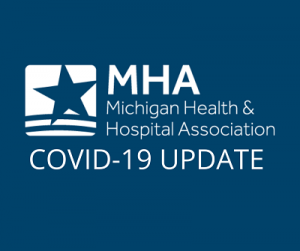
 Governor Whitmer and Budget Director Jen Flood released the executive budget recommendation Feb. 7 for fiscal year 2025. The MHA is pleased to see that the Governor’s budget continues vital funding for Medicaid, rural and critical access hospitals, obstetrical services and the Healthy Michigan Plan. Supporting Michigan’s Medicaid program will help maintain access to care for underserved populations throughout Michigan. Additionally, the MHA looks forward to seeing proposals to increase funding for behavioral health services and continued resources dedicated to maternal and infant health.
Governor Whitmer and Budget Director Jen Flood released the executive budget recommendation Feb. 7 for fiscal year 2025. The MHA is pleased to see that the Governor’s budget continues vital funding for Medicaid, rural and critical access hospitals, obstetrical services and the Healthy Michigan Plan. Supporting Michigan’s Medicaid program will help maintain access to care for underserved populations throughout Michigan. Additionally, the MHA looks forward to seeing proposals to increase funding for behavioral health services and continued resources dedicated to maternal and infant health.
Hospitals and health systems continue to face significant workforce shortages and Gov. Whitmer’s proposed budget for next fiscal year will assist with workforce shortages through investments for tuition-free community college pathways for Michiganders and continued funding for the Michigan Reconnect program, which provides tuition-free programs in high-demand healthcare credentials.
MHA CEO Brian Peters released a statement in support of the executive budget recommendation, applauding Gov. Whitmer’s commitment to being a healthcare champion.
While the Governor’s budget recommendation was by far and above the highlight of the week, the state legislature also moved forward several MHA supported bills. The House Health Policy Committee voted on a package of bills, House Bills (HBs) 4532, 5368 and 5369, to address childhood lead exposure. The MHA supported HB 5368, sponsored by Representative Julie Rogers (D-Kalamazoo), which alters the definition of elevated blood level to reflect significantly lower blood lead level concentrations. Lowering the concentration in state law allows for earlier intervention and triggering of support and services for kids who are exposed to lead.
The Senate Health Policy committee took testimony on MHA supported legislation regarding telehealth access. HBs 4579, 4580, 4131, and 4213, sponsored by Reps. Natalie Price (D-Berkley) Felicia Brabec (D-Ann Arbor), Tullio Liberati (D-Allen Park) and Christine Morse (D-Kalamazoo), All aim to ensure that telehealth access continues to be robust and reimbursed, especially now that pandemic era flexibilities are rolling back. Access to care across multiple platforms helps patients meet their healthcare needs. The MHA supports maintaining robust access to telehealth services and reimbursement for services rendered.
In addition, the House Insurance Committee took testimony on House Bill 4015 sponsored by Rep. Jennifer Conlin (D-Ann Arbor). HB 4015 limits the co-pay for prescription insulin. The MHA joined other stakeholders, including the American Diabetes Association, to support this legislation, which will positively impact the affordability of insulin for Michiganders.
Members with questions may contact Adam Carlson at the MHA.





